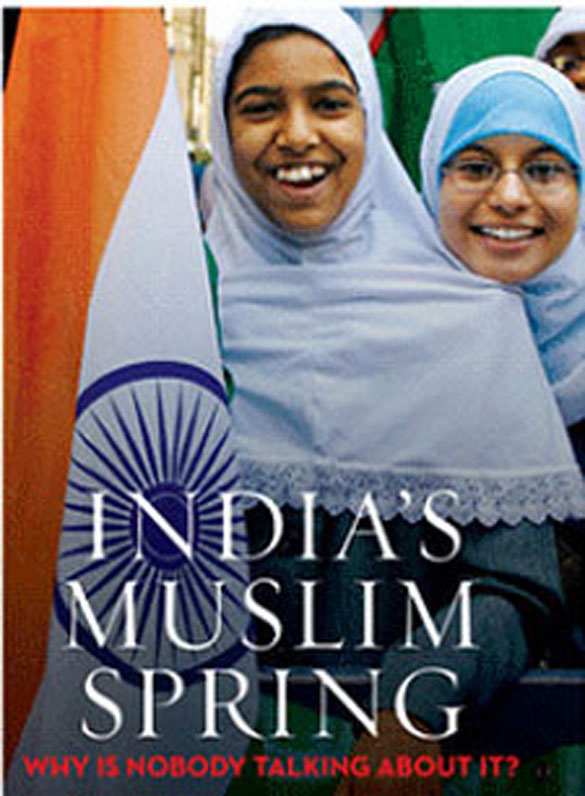
By Hasan Suroor
November 25, 2016
Today, Islam is facing arguably its gravest existential crisis since the Crusades. Yet, nobody is asking the one question that every concerned Muslim should be asking: what is the future of Islam? Will it survive the crisis? If so, in what form?
I am aware that in the current climate to pose such questions may be regarded as heretical. But the idea that it’s just a passing phase (“We saw off the Crusades, we will see off this one too”) betrays the sort of complacency that has seen inherently tolerant Hinduism mutate into RSS-style Hindutva.
Crusades were led by Islam’s external enemies; and it’s always easier to unite against a common threat from outside. Today, the threat is from within. Muslims are Islam’s biggest enemy.
The conflict is no longer between Muslims and “infidels”; devout Muslims and “heretic” Muslims; or even Sunnis and Shias. It has now come down to Sunnis versus Sunnis; Shias versus Shias … one Muslim against another Muslim.
A community, which took pride in the idea of a global Umma united by a common faith, today resembles a family each of whose members is at war with the other. Jihad has come home and is devouring its own children. Muslim communities across the world are seething with internal sectarian divisions and hatred. Nothing is sacred any more.
Even the Hajj, the holiest of holy symbols of Islamic solidarity, has got caught up in the civil war tearing Islam apart. Once we were all Muslims. Not anymore.
Now we sit in separate sectarian boxes labelled Deobandis; Barelvis; Salafis; Wahhabis; Wahhabi Salafis. And certified as “good” Muslims and “bad” Muslims by self-styled arbiters of Islam. And if you fail their arbitrary test of what constitutes a “good” or a “true” Muslim, well, hell hath no fury like a mullah spurned.
One might argue that divisions always existed. Yes, but within the parameters of legitimate dissent. Nobody was murdered for belonging to the “wrong” sect or school of thought. The only overt hostility was between Shias and Sunnis, but it rarely spilled into violence beyond minor clashes during Muhurram.
Now, Shias are killed for simply being Shias. In Pakistan they are not even recognised as proper Muslims. Once, Islam’s internal divisions were only of academic interest and barely touched the lives of ordinary Muslims. In the space of a few decades, however, Islam has gone from a religion one happened to be born into and which one observed or didn’t observe according to one’s conscience (nobody put a gun to your head), to become a 24/7 obsession.
It has been hijacked by extremist vigilantes with the licence to kill anyone they suspect of not being the “right” sort of Muslim. I am not talking about what’s happening in Syria or Iraq or Libya or about the toxic Islamisation of Pakistan and Bangladesh. The menace of often violent vigilantism has now arrived on the streets of Britain.
That #NotMuslimEnough is one of the most popular messages that recently trended on social media indicates the prevailing level of intra-Muslim intolerance. In recent months, three Muslims in Britain have been murdered by fellow Muslims for not being Muslim enough.
One was Ahmadiyya Muslim and two were Sunni Muslims whose Sufi practices were regarded non-Islamic by Salafi Sunnis. There are areas of Muslim concentration, including East London, where vigilantes hang around to enforce Islamic dress code on Muslim women. Those who protest are abused and threatened.
It has become a cliché to say that what is going on is a battle for the soul of Islam. But which Islam? These days, Islam means different things to different Muslims. One Muslim’s Islam can be another’s heresy. Islam has been reduced to a series of perverse and self-serving interpretations.
It is the culmination of a process that began in the 1970s and 1980s with the start of Wahhabisation of Sunni Islam and Khomeinisation of Shia Islam. The Muslim reaction to Salman Rushdie’s Satanic Verses was a watershed; since then things have only gone downhill with thugs taking over from mullahs.
What I find extraordinary is the Muslim indifference towards Islam’s future, as if they couldn’t care less. A standard smug reaction is that all religions, notably Christianity, have gone through upheavals and emerged stronger. So will Islam; a “new” Islam fit for the 21st century will emerge from the debris of the old.
But in the absence of any evidence to support such optimism, it sounds more like wishful thinking. If anything, all the evidence points to the possibility of an opposite outcome: the world ending up with a more regressive, insular and intolerant Islam.
Meanwhile, Islam’s civil war is likely to get worse, compounded by the unseemly scramble between Sunni Saudis and Shia Iranians for political supremacy of the Muslim world. The burden of being a Muslim is going to get heavier.
Source: blogs.timesofindia.indiatimes.com/toi-edit-page/islams-existential-crisis-tolerance-is-needed-to-stop-it-from-splintering-into-separate-sectarian-boxes/

No comments:
Post a Comment